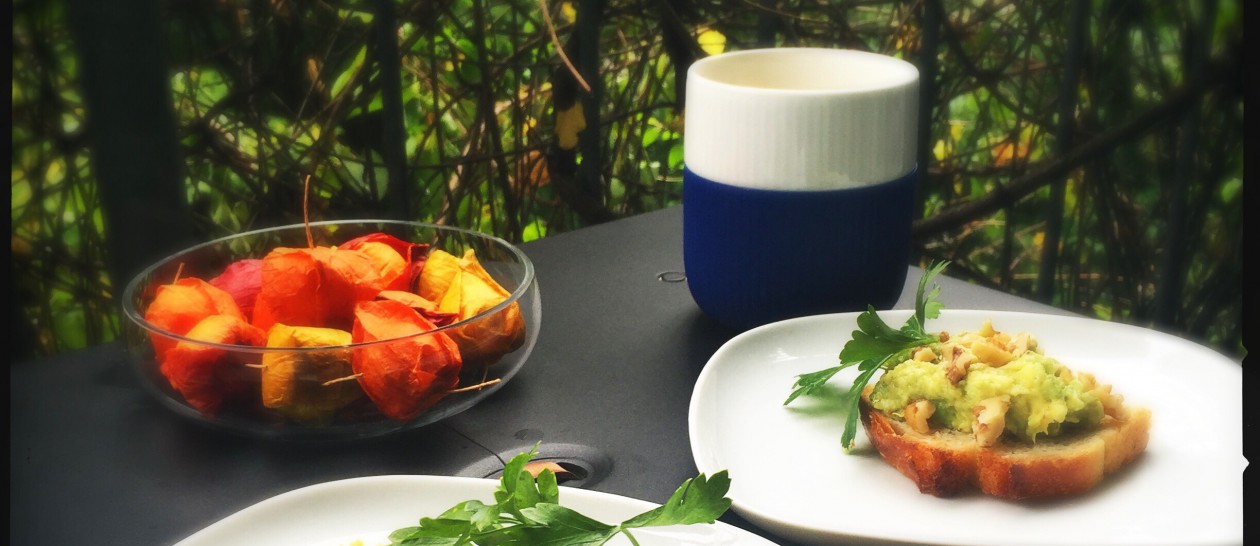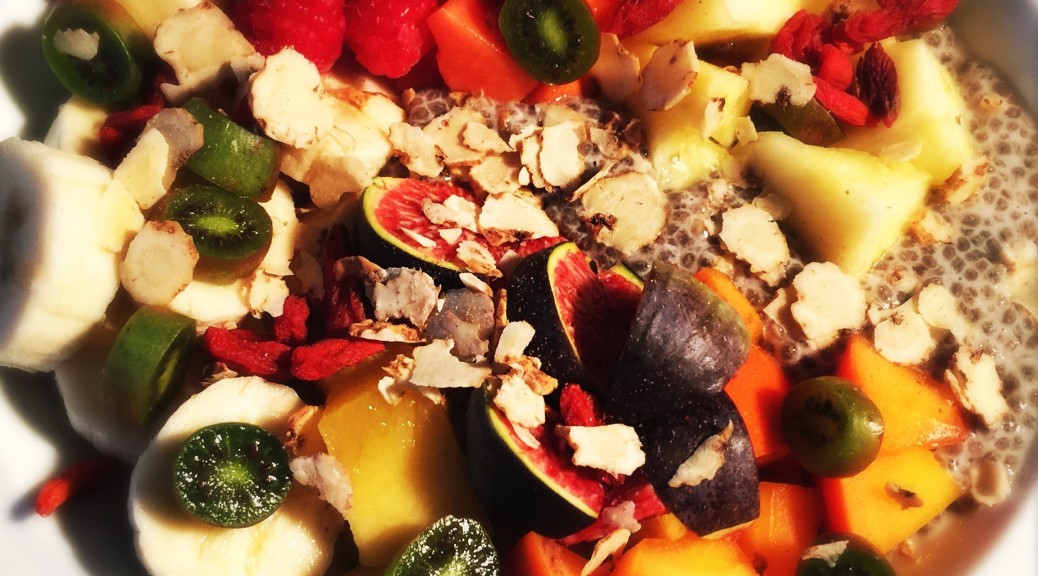After we´ve figured out that our followers like our breakfast bowls most we have decided to share some thoughts with you on why we eat what we eat for breakfast 
Most of us have either chia pudding or overnight oats most or even all mornings of the week. These are normally combined with fruits, nuts, or juices – or all of it. We would never dare to say that this is the ONE solution for all – because maybe it´s not as everyone and every metabolism functions differently. But: We were frequently asked why we have such huge bowls for breakfast.
Here are the answers
- As for us, we never were one of those people who could go without breakfast for hours. We always had these hunger pangs attacking us late in the morning simply due to very low blood sugar. Additionally to not feeling fine and often unconcentrated, low blood sugar makes you crave unhealthy food because the only thing you can think about is how to get any food – no matter what. And often the healthiest choice is not the one you get the easiest.
- For years, we had self-baked bread and honey, jam, or other spread for breakfast. This was an o.k.-option, but still we couldn´t really get a grip on hunger pangs during the late morning.
- Our food journey has led us from trying various granolas, mueslis, joghurts, and omelettes – amongst others- to chia seeds or oats soaked in non-diary milks, these combined with fruits and some other food for mood. Finally, we feel absolutely energized after breakfast, but never stuffed. The amount we eat compared to what we had as bread, omelette etc. is certainly much more but we feel so much lighter and better. And there´s no more low blood sugar danger during the morning.
- The chia seeds provide us with a lot of protein and omega 3 fatty acids. It takes the body relatively long to break proteins down, so you keep your metabolism nicely busy for hours. Omega 3 fatty acids are often said to have various health benefits (reduce inflammation, a certain role in preventing cardiovascular disease, improve mental health, have a posisive effect in the treatment of atopical diseases) though all of these need to be better scientifically proven in the future.
- Even though our breakfast might seem very sweet, there´s nothing of these fruit sugar (=fructose) related problems you can read so much about in the media recently: As we eat the fruits as a whole, there are a lot of fibres that prevent the fruit sugar to quickly reach a blood sugar peak, followed by a sudden low. When eating the whole fruits, there´s a constant level of fruit sugar absorption – thanks to the fibres!
- The optional addition of e.g. raw cacao nibs sees us consume what we like to call natural health enhancers: In the cacao nibs, there is magnesium contributing to proper nerve and muscle functioning, again a considerable amount of fibres, iron and antioxidants (to prevent free radicals doing damage to your body), cacao nibs stimulate the brain to release neurotransmitters that help you feel really good, and phenylethyamine to make you feel focussed and alert. Others of these foods include tiger nuts (earth almonds), dried berries etc.
- Knowing we eat so much health-realted good food made us stay away from supplements – but, please, be careful, this may not be true for everyone as every body functions differently! We were successful and we wish you can be, too – but if in doubt please have this checked by your GP, nutrionist etc.
- We do acknowledge that there are people who claim they can´t eat anything early in the morning. Breakfasts like bread, chia pudding, overnight oats etc., they all can be either easily and quickly prepared, or just be taken from the fridge – and off you are.
- Recent research has shown that there seems to be an active circadian clock in various organs which are related to food intake (e.g. stomach, intestine, pancreas (=insulin release!)). If due to delayed food intake the function of these organs is not considered, the food eaten later in the day will be stored as fat. Maybe not the nicest of all imaginations, uh?!

- For children: There are literally no reports that chia seeds are not suitable for children. Luckily, this topic is off the agenda!
- By the way, school-based breakfast programmes have shown to improve attendance rates and tardiness amongst their students. Those pupils who regularly eat a healthy breakfast are more likely to perform better in school. The latter study also showed that having snacks such as crisps or sweets in the morning was no better than eating nothing at all! The authors could show that there´s not only a significant (= not by chance) association between eating breakfast and doing well, but also between a healthy breakfast and doing well. It didn´t make a difference whether the children had their breakfast at home or at school – it was simply important they had a breakfast. This is good news for all the families who simply cannot manage to have the breakfast at home (provided the school offerss a breakfast programme/club).
- Tip: Especially in winter, have the chia pudding or overnight-oats heated before you eat them, this makes them a very soothing and comforting breakfast!
References
Taras H. Nutrition and student performance at school. J Sch Health 2005; 75(6):199-213
Garaulet M, Goméz-Abellán P. Timing of food intake and obesity: a novel association. Physiol Behav 2014; 134:44-50
Littlecott HJ, Moore GF, Moore L, Lyons RA, Murphy S. Association between breakfast consumption and educational outcomes in 9-11-year-old children. Public Health Nutr 2015 Sep 28:1-8 [Epub ahead of print]

